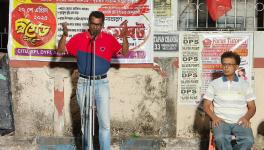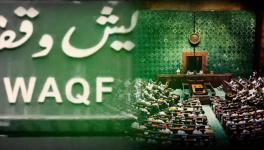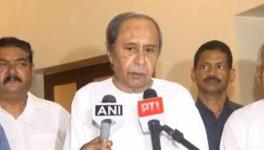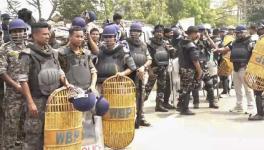Centre Reduces Funds for NRDWP in Drought-hit Karnataka, Has No Money for MGNREGS
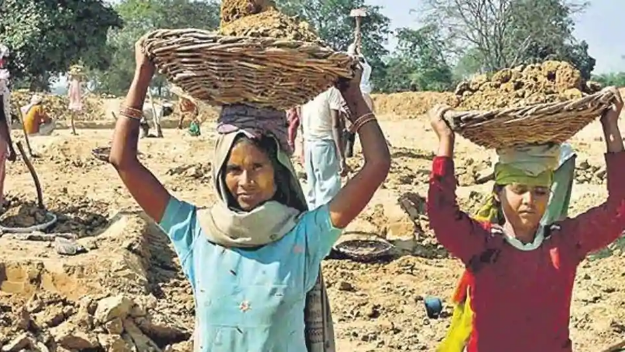
Image Coutesy: Hindustan Times
The current central government led by Narendra Modi has never failed to make grand promises. However, it has neither fulfilled its pre-poll promises nor has been able to implement its own plans and policies. This is true especially for the welfare schemes in which both the central and the state governments hold a stake. Here are two of such schemes where the state of Karnataka is paying for the inefficiency of the central government: National Rural Drinking Water Project (NRDWP) and Mahatma Gandhi National Rural Employment Guarantee Act (MGNREGS). Both of these schemes have received insufficient funding from the central government, thus forcing the state government to increase its share in the projects.
Centre has no money for Drought-hit Karnataka
According to a report in the Deccan Herald, the central government had allocated Rs. 605.38 crore in 2014-15 for NRDWP in Karnataka and the state government had allocated Rs. 1,083 crore in the same year. In 2018-2019 fiscal year, the centre’s share was as low as Rs. 312.33 crore and the state government’s share shot up to 1,887.67 crore. NRDWP was launched in 2009. The project aimed in ensuring that every rural household had safe and adequate water for drinking, cooking and other domestic needs. The centre and the states are supposed share the cost in a 50:50 pattern, but as it can be seen, the expenditure of the state government is more than twice the spend of the central government.
The New Indian Express, on June 13, 2018, had reported that there was a drastic reduction in allocation of funds by the central government to the state for drinking water projects. The Rural Development and Panchayat Raj (RDPR) Minister Krishna Byre Gowda had said, “Even though the Centre had to bear 50 per cent of the project costs, the funds sanctioned by it are enough to cover only 10 per cent of the cost.” This fund cut for NRDWP in the state came when the Karnataka government has declared total of 86 taluks in 23 districts ‘drought-affected’ during the Kharif season in 2018, and additional 14 taluks in 9 districts declared as ‘severely drought-affected’.
Also Read: Drought in Karnataka: A Human-made Disaster
The state government has sought drought relief aid of Rs. 2,434 crore to compensate for the crop loss in 100 out of 175 taluks. The government, however, has announced a relief of only Rs 949.49 crore. This, in comparison to the relief aid given to the BJP-ruled Maharashtra which has declared 151 out of 358 taluks drought-affected, is nothing. The central government, according to Karnataka Pradesh Congress Committee (KPCC) President Dinesh Gundu Rao, has announced an aid of Rs 4,714.28 crore. Rao, in a letter written to the PM, has said, “I would like to let you know that this show of favouritism by your government is not appreciated by the people of Karnataka," reported The News Minute.
The central government – by not announcing sufficient drought relief aid and by reducing its share in NRDWP – has made it difficult for the state government to tackle the situation in the state.
Also Read: Nearly Half of Maharashtra to Face Severe Water Crisis in 2018-19
According to the report in the Deccan Herald, “The Centre has tried to justify the fund cut during a recent Comptroller & Auditor-General (CAG) audit into the NRDWP scheme. Apparently, Karnataka is one of the 13 states where the Centre imposed fund cuts for reasons such as late receipt of proposals from the state governments, less release of state’s share and excess expenditure on operation and maintenance. From 2012 to 2017, Karnataka’s delay in releasing funds ranged from one day to 127 days, the audit found. In the same period, the state was found operating 108 savings bank accounts for the scheme against the stipulated two accounts, indicating that funds were parked in various unauthorised accounts. Also, Karnataka did not prepare a State Specific Sector Policy Framework and a Water Security Plan. There were also shortcomings in its annual action plan, besides other lapses.”
The RDPR minister Gowda, speaking to Deccan Herald, said, “These lapses could have resulted in fund cuts of about Rs 50 crore. “That’s immaterial. It does not justify the drastic cuts imposed by the Centre.”
However, Karnataka is not a unique case. According to a study by PRS India, titled Status of Drinking Water and Sanitation in Rural India, there is a reduction in allocation for NRDWP by the central government in general.
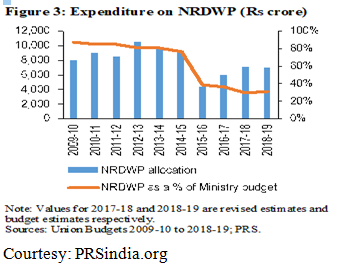
The graph above shows the decline in the Centre’s allocation in the drinking water projects. However, the report discussing this graph also says that the expenditure of the Centre on sanitation – its Swachh Bharat Mission (SBM) – has exponentially increased from 13 per cent to 69 per cent. But even for SBM, the Centre is yet to release 48 per cent of the allocated amount for 2018-2019. The question here is: why grand promises and a farce show of an intention of realising these promises? The story of MGNREGS in Karnataka also leads to the same question.
MGNREGS
The state government has time and again requested the central government to ensure the payment for the jobs under MGNREGS. Rao, in a letter written to the PM, has also said, “Our government requested to ensure timely payments for jobs under MGNREGS but your government's apathy towards the state continued. Mandatory payment of MGNREGS workers to the tune of Rs 1,800 crore is pending in Karnataka.it is a violation of the law and it is a burden that most vulnerable people cannot bear," according to The News Minute.
A Deccan Herald report says the state government has decided to pay Rs 439 crore towards the pending payments over and above its share.
According to a report in Prajavani, the minister in charge of Dakshina Kannada District, U.T. Khader, addressing the press conference in Mangalore, said that the central government owes Rs. 2,059 crore to the state government. Even though the state government has submitted the bills for the completed projects, the government has not released funds, he claimed.
Also Read: Another Lifeline Smothered: MGNREGA in Shambles
On January 3, 2019, Members of Parliament and State Assemblies from Karnataka, Rajasthan, Gujarat, Haryana, Madhya Pradesh, Maharashtra and Bihar, prominent economists and activists, members of the Peoples’ Action for Employment Guarantee, MGNREGS Sangharsh Morcha, Samruddha Bharat Foundation, and leaders of farmers’ movements wrote to the prime minister, seeking more funds and demanding the government to renew its political commitment for MGNREGS.
In 2015, Modi had broken the silence surrounding the scheme’s future. He had said, “My political instincts tell me that MGNREGS should not be discontinued, because it is a living memorial to your failures. After so many years in power, all you were able to deliver is for a poor man to dig ditches a few days a month."
Samarth Grover writes for Newsclick, “With such statements from the prime minister, it is not surprising to find the scheme crumbling. World Bank had previously praised the scheme, and ranked it as the world's largest public works programme. It was further quantified that for the scheme to be successful, India would need to allocate it about 1.7 percent of its GDP. However, the current allocation amounts to a mere 0.26 percent of GDP in 2017-18, in contrast with 0.58 percent in 2010-11.”
One of the grand promises that Narendra Modi made before elections in 2014 was of creating jobs, but the employment-generating schemes and projects like MGNREGS are being neglected.
Also Read: 2018 – Year of Raging Joblessness
Get the latest reports & analysis with people's perspective on Protests, movements & deep analytical videos, discussions of the current affairs in your Telegram app. Subscribe to NewsClick's Telegram channel & get Real-Time updates on stories, as they get published on our website.









